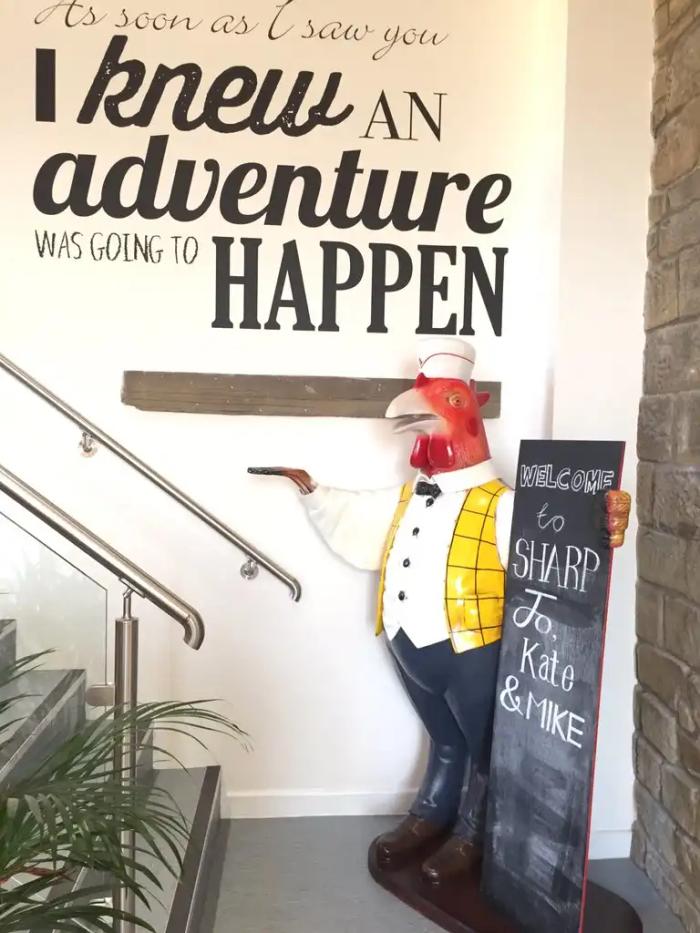When you have a great product, which people love, it’s worth focusing resources on building loyalty as much as on acquisition.
As you start to look after your customers, you build a loyal fan base that stays with you and refers business your way. In fact a 5% increase in customer retention can increase profits by 25-95%.
“84% of B2B buyers now start the purchasing process with a referral, and peer recommendations are influencing more than 90% of all B2B buying decisions. Harvard Business Review”
Growth of a company is dependent on attracting new customers too but it’s an expensive business. On average it costs five times more to acquire a new customer than retain an existing one. With loyal customers naturally promoting your brand for free, it makes commercial sense to focus on building brand loyalty as well as acquisition. But how do you do it? Here are some proven ideas to get you started:
Have a remarkable product
Loyalty starts with a remarkable product or service that people feel compelled to talk about. When you make a promise, your product must deliver consistently and exceed expectations. Whether it’s a promise to increase sales or improve health, your product must deliver the desired result. Trends come and go, so it’s also important to stay close to your customers, understand their changing needs and adapt your product or service to keep you relevant to their lives.
Welcome new customers authentically
When you onboard new customers you have a huge opportunity to stand out and make them feel special. Whether this is an online or face to face process, add some personal touches along the way. Something as simple as a handwritten sign welcoming new clients to your business, like The Sharp Agency's example here - it makes people feel special.

If your onboarding process is online it’s worth reflecting on those you’ve experienced yourself over the years or try some out. What did you like about them, how did they make you feel?
Usually it comes down to authenticity.
When you feel an interaction is genuine and the person cares about you, you remember the experience favorably and want to experience it again. Translating this feeling into an email is easier when it comes from a real person that’s truly welcoming a new customer as if they were face to face.
Provide information they need in a friendly way, just enough to have the confidence to start, as you don’t want to overwhelm. Pointing out key features, directing them to useful communities and opening the door to support is always useful. Keep things light and simple with a focus on being friendly, welcoming and helpful.
Discover why loyal customers love you
Every product has loyal customers, what’s important is scaling this up to a much bigger tribe of advocates. A useful exercise is discovering why customers love you. This can be achieved by chatting to customers or doing a regular survey at scale such as the Net Promoter Score survey.
You’ll get instant feedback on how your customers feel and see comments about what they like or dislike. Don’t forget to dig deep into low scores too as you’ll quickly identify the gaps in your product or service.
Thank your biggest fans
When your customers feedback, recommend or promote you on social media, remember to reach out and say thank you. If they spend time talking to you, giving you useful insight, don’t forget to show your appreciation afterwards.
Saying thanks to your most loyal customers helps retain their custom as it shows you care, it’s a nice thing to do. This can be a simple email, handwritten note, response on social media or you can offer some exclusive perks such as discounts, invitations to events, extra support - anything you know they will value and communicate to them that you care.
Deliver exceptional customer support
In a competitive marketplace it can be easy to replicate a product but it’s much more difficult to copy an experience. Supporting your customers in your own unique, positive way can help build customer loyalty.
When people feel supported and taken care of, they’re more likely to buy from you again. The great news is, when you’re a SME, it’s easier to deliver a more authentic customer service than the bigger companies. You can usually be more agile and empower the team to do what’s right for the customer instead of being wrapped up in bureaucracy. With this approach you’re more likely to exceed customer expectations, which is a sure fire way to improving loyalty.
Be honest and transparent
People expect transparency in business and truly value honesty over anything else. It’s more powerful to acknowledge when things go wrong and show empathy if a customer feels dissatisfied. It shows you’re human and you care - all positive attributes to build trust and loyalty.
Connect and communicate
Regular, helpful communications help build a connection with your audience and foster loyalty. Especially if it’s two-way. Being accessible and responsive shows you’re there for customers when they need you. Keeping people up to date on new product launches, feature changes and providing helpful, relevant content all helps build trust and loyalty to your brand.
Be kind
In summary, all of the above is about being kind to customers, treating them how you expect to be treated. It’s a simple concept but one that’s easily forgotten as businesses grow and get busier.
Technology can help automate some of these processes and a CRM like Capsule is a great place to store and organize all your customer information so you’re more able to look after customers.




